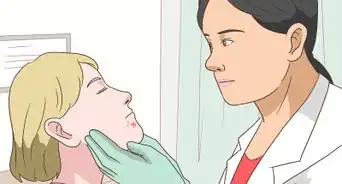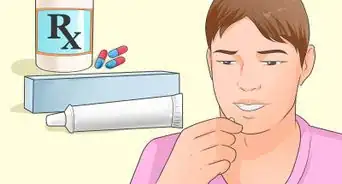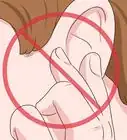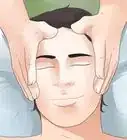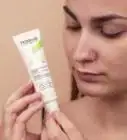This article was co-authored by Lydia Shedlofsky, DO. Dr. Lydia Shedlofsky is a Resident Dermatologist who joined Affiliated Dermatology in July of 2019 after completing a traditional rotating internship at Larkin Community Hospital in Miami, Florida. She earned a Bachelor of Science in Biology at Guilford College in Greensboro, North Carolina. After graduation, she moved to Beira, Mozambique, and worked as a research assistant and intern at a free clinic. She completed a Post-Baccalaureate program and subsequently earned a Master's Degree in Medical Education and a Doctorate of Osteopathic Medicine (DO) from the Lake Erie College of Osteopathic Medicine.
There are 11 references cited in this article, which can be found at the bottom of the page.
This article has been viewed 196,465 times.
If you’ve ever had blackheads on your face, then you’ve probably noticed holes on your skin after they’re removed. These are just enlarged pores, and they should heal on their own. However, if this is taking too long, then you might have a scar or loose pores. This sounds bad, but don’t worry! These are common problems and they’re nothing to be ashamed of. Acne damage is tricky, so you might not be able to heal it completely on your own, but you can definitely take some steps to make your skin clearer. If home treatments don't work, then see a dermatologist for more help.
Steps
Home Remedies
-
1Wash your face gently. It’s important to wash and exfoliate your face as part of your normal skincare routine. However, be gentle, since inflammation can make holes on your face more pronounced.[1] Rub your face lightly instead of scrubbing aggressively. Also use warm water instead of hot, because hot water can cause irritation and make your pores larger. When you’re done, pat your face dry gently with a towel.[2]
- Use gentle cleansers designed for sensitive skin to prevent further irritation.
- For the best skin health, it’s best to wash your face twice a day. This removes dirt and debris that could stretch your pores out.
-
2Exfoliate your face daily. Exfoliating is important to remove dirt and debris from your pores, reducing inflammation. However, remember to be gentle. Rough scrubbing can irritate your pores and make holes larger. Exfoliate lightly once a day after washing your face to keep oil and dirt at bay.[3]
- Use a gentle exfoliant designed for sensitive skin. This way, your pores are less likely to get irritated.
- If you need recommendations for a good product, ask your dermatologist.
Advertisement -
3Close the holes temporarily with cold water. Cold water makes your pores contract, which makes them look smaller. Try splashing some cold water on your face or holding a cold washcloth against the blackhead holes. This won't shrink them permanently, but it works as a good temporary fix.[4]
- For the best results, moisturize your skin right after splashing it with cold water to prevent dryness.
-
4Use non-comedogenic makeup that won't clog your pores. Non-comedogenic products are specially designed so they won't clog your pores or blackhead holes. This prevents them from expanding and looking larger. When you’re shopping for facial products, look for the “non-comedogenic” label to keep your pores tight and small.[5]
- Also look for labels like “oil-free” or “won’t clog pores.” These indicate that they won’t make your blackhead holes look larger.
- This goes for cleansers, moisturizers, and creams as well as makeup. Stick with products that will keep your pores open.
-
5Wear sunblock whenever you’re in the sun. UV rays from sunlight will damage your skin. Damaged skin can sag and make pores look much larger. Keep your skin firm by wearing SPF 30 sunblock when you go outside to prevent UV rays from causing any damage.[6] [7]
- If your skin is damaged or you’re trying to close up blackhead holes, then wear sunblock every time you go out, even if it’s cloudy or cold. There are still UV rays bouncing around, and even small exposure can damage your skin.
- This is also good advice for preventing skin cancer and long-term skin damage. Continue wearing sunblock after your blackhead holes heal.
-
6Wait for the holes to heal on their own after blackhead removal. It’s actually completely normal for you to have some holes initially after removing blackheads. This is because the dirt and debris filling the pore is suddenly gone, leaving a small space.[8] Your body will naturally fill this hole in through its normal healing process, so give it a few days to see if the hole looks smaller.[9]
- The hole won’t completely disappear because it’s actually a pore, and you need those pores open. The space should get smaller, though.
- If you have loose skin, especially after turning 40, then the holes may not fill in as well on their own.
OTC Creams
-
1Apply retinol to tighten your skin and pores. Retinol is a common medication for acne and scarring. It can tighten your pores and make blackhead holes look less pronounced. Try getting retinol from a pharmacy and applying it to your face to see if it works for you.[10] It’s best to apply it before you go to bed.[11]
- Retinol could irritate or dry your skin. If this happens to you, wash your face first and then apply retinol 30 minutes later.
- Retinoids are available without a prescription, but your dermatologist may also prescribe a stronger type.
-
2Control oil and inflammation with salicylic acid. This is a common acne cleanser that gets rid of oil, unclogs pores, and reduces inflammation. This can help prevent your pores from getting larger or inflamed and make blackhead holes less prominent. Use an OTC facial cleanser with salicylic acid to wash your face and prevent inflammation on your skin.[12]
- Washing your face with salicylic acid is also an important way to treat and prevent acne. Keeping your acne under control will prevent more blackhead holes from forming.
-
3Treat blackheads and scars with alpha hydroxy acids. AHA is a common treatment for blackheads, and can help dry them out to prevent damage.[13] It also shows some success in treatment many types of scars, and might work on acne damage like blackhead holes. Try applying a cream with AHA to your blackhead holes to see if this helps them close up.[14]
- There are also prescription AHA creams that you can only get from your dermatologist.
Dermatology Treatments
-
1Treat persistent acne to prevent scarring and holes. One of the best ways to treat blackhead holes is to prevent more acne from starting. Acne stretches out your pores and makes holes much more pronounced. If you often have acne, then see your dermatologist for treatment. This will give you healthier and clearer skin overall.[15]
- One of the best ways to prevent acne is washing your face twice a day with a gentle cleanser to remove dirt and bacteria.
- Your dermatologist might recommend some topical or oral medications to control persistent acne. They might also tell you to make some lifestyle changes like following a different diet.
-
2Tighten your skin with a laser treatment. A major reason that blackhead holes don’t close up is because your skin is too loose. A laser treatment is the main way to make your skin tighter and firmer.[16] Your dermatologist will focus a laser on your skin to smooth out any trouble spots like blackhead scars. Your appointment might take a few minutes to an hour, and then you can go home to heal up.[17]
- A laser treatment might be a little painful, but your dermatologist will apply analgesic gel to numb your skin. You might have to take some pain relievers for a few days while your skin heals.
- Laser treatments can stimulate collagen growth to tighten your skin or get rid of damaged skin around scars. Your dermatologist will fill you in on the exact procedure.
-
3Have minor surgery for holes that won’t go away. There are also a few surgical procedures your dermatologist might try for persistent blackhead holes. The most common one is a punch excision, where the dermatologist removes scarred skin and stitches the wound. If your blackhead hole makes a deep scar, this might be your best bet.[18]
- This type of surgery is quick and very simple. It shouldn’t take too long, and then you can go home to recover.
- Surgical procedures also have a risk for scarring, so your dermatologist will probably only try these as a last resort.
Expert Q&A
-
QuestionWill pores close after blackhead removal?
 Lydia Shedlofsky, DODr. Lydia Shedlofsky is a Resident Dermatologist who joined Affiliated Dermatology in July of 2019 after completing a traditional rotating internship at Larkin Community Hospital in Miami, Florida. She earned a Bachelor of Science in Biology at Guilford College in Greensboro, North Carolina. After graduation, she moved to Beira, Mozambique, and worked as a research assistant and intern at a free clinic. She completed a Post-Baccalaureate program and subsequently earned a Master's Degree in Medical Education and a Doctorate of Osteopathic Medicine (DO) from the Lake Erie College of Osteopathic Medicine.
Lydia Shedlofsky, DODr. Lydia Shedlofsky is a Resident Dermatologist who joined Affiliated Dermatology in July of 2019 after completing a traditional rotating internship at Larkin Community Hospital in Miami, Florida. She earned a Bachelor of Science in Biology at Guilford College in Greensboro, North Carolina. After graduation, she moved to Beira, Mozambique, and worked as a research assistant and intern at a free clinic. She completed a Post-Baccalaureate program and subsequently earned a Master's Degree in Medical Education and a Doctorate of Osteopathic Medicine (DO) from the Lake Erie College of Osteopathic Medicine.
Dermatologist They will, but you may need long-term use of prescription strength Retin-A or to undergo cosmetic procedures recommended such as laser therapy or dermabrasion.
They will, but you may need long-term use of prescription strength Retin-A or to undergo cosmetic procedures recommended such as laser therapy or dermabrasion.
Warnings
- Don’t try any unverified home treatments for blackhead holes. These could cause more damage and make the problem worse.⧼thumbs_response⧽
References
- ↑ Lydia Shedlofsky, DO. Dermatologist. Expert Interview. 14 May 2021.
- ↑ https://www.aad.org/public/everyday-care/skin-care-secrets/face/treat-large-pores
- ↑ https://www.aad.org/public/everyday-care/skin-care-secrets/face/treat-large-pores
- ↑ https://stylecaster.com/beauty/does-cold-water-shut-pores/
- ↑ https://www.aad.org/public/everyday-care/skin-care-secrets/face/treat-large-pores
- ↑ Lydia Shedlofsky, DO. Dermatologist. Expert Interview. 14 May 2021.
- ↑ https://www.aad.org/public/everyday-care/skin-care-secrets/face/treat-large-pores
- ↑ https://globalnews.ca/news/4070092/blackhead-removal/
- ↑ https://www.glamour.com/story/how-to-get-rid-of-blackheads-correctly
- ↑ Lydia Shedlofsky, DO. Dermatologist. Expert Interview. 14 May 2021.
- ↑ https://www.aad.org/public/everyday-care/skin-care-secrets/face/treat-large-pores
- ↑ https://www.mayoclinic.org/diseases-conditions/acne/diagnosis-treatment/drc-20368048
- ↑ https://www.uofmhealth.org/health-library/hw199229
- ↑ https://my.clevelandclinic.org/health/diseases/21222-acne-scars/management-and-treatment
- ↑ https://my.clevelandclinic.org/health/diseases/21222-acne-scars/prevention
- ↑ Lydia Shedlofsky, DO. Dermatologist. Expert Interview. 14 May 2021.
- ↑ https://www.nhs.uk/conditions/acne/complications/
- ↑ https://www.mayoclinic.org/diseases-conditions/acne/expert-answers/acne-scars/faq-20058101


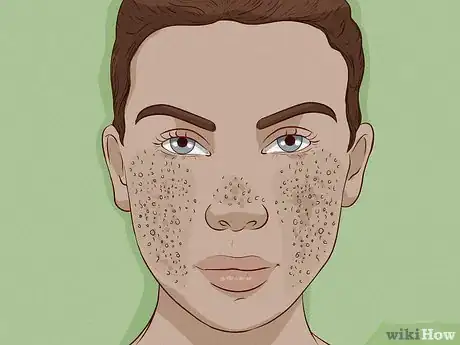
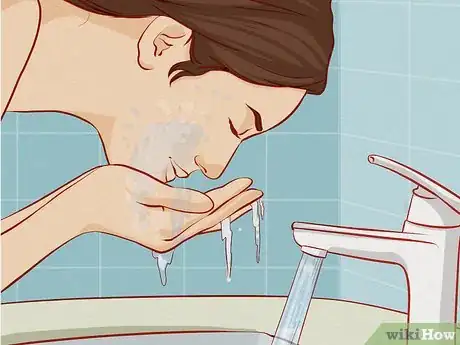
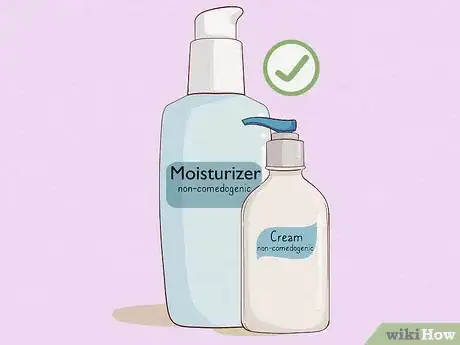
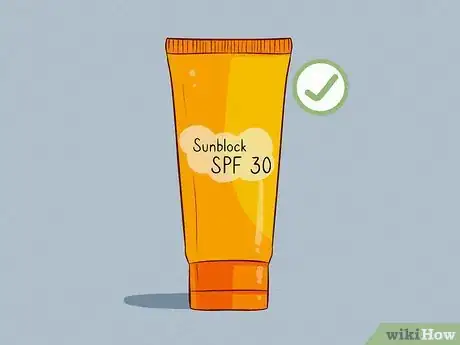
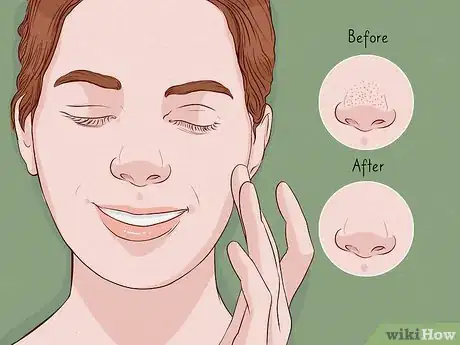
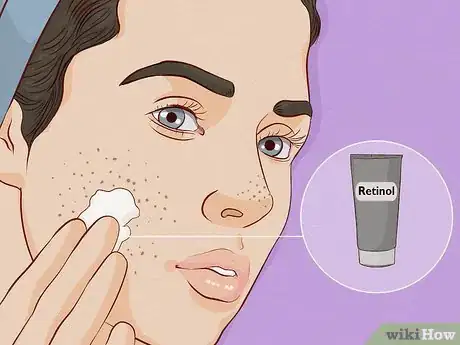

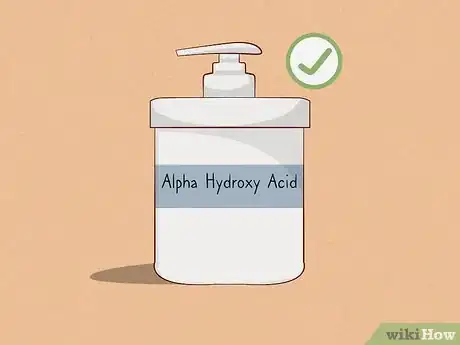
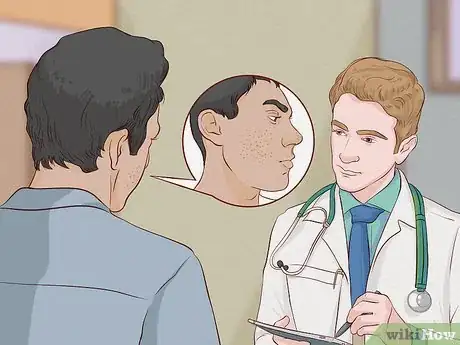
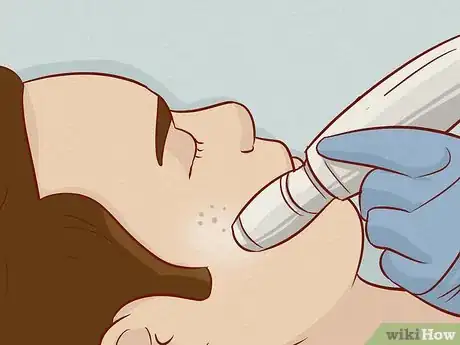
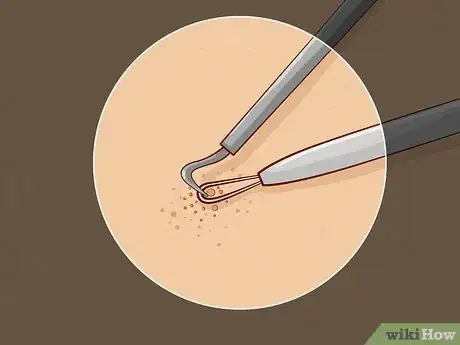
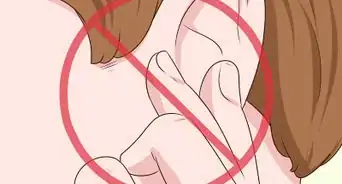
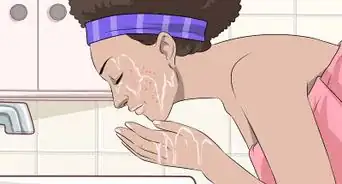
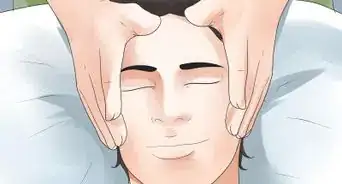
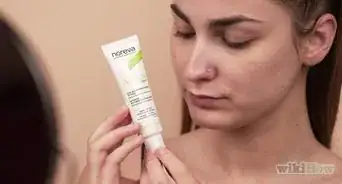
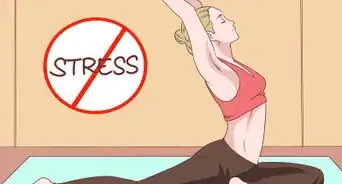
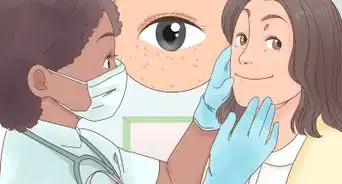
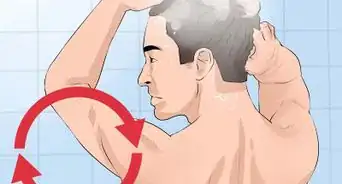
-Step-9.webp)
